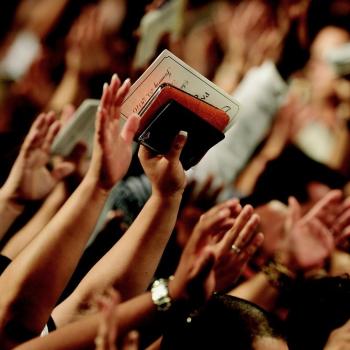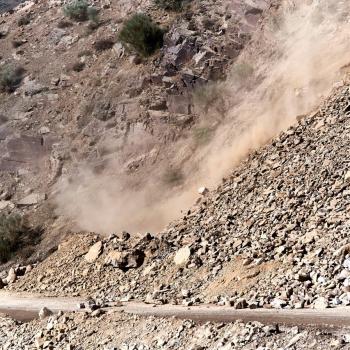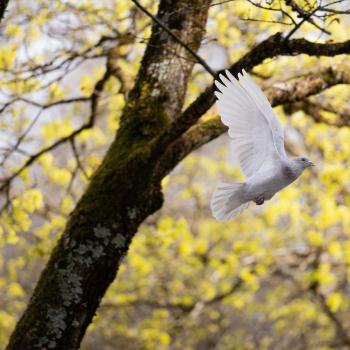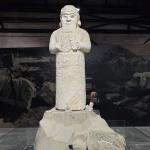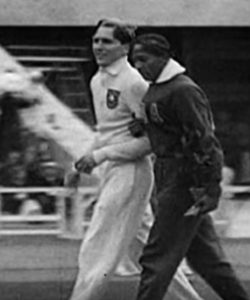
Jesse Owens
Last week we celebrated Juneteenth. It was extremely hot out, so most of our day was spent watching documentaries on television. By mid-afternoon, I was tired of “academic” television, so I asked Marty if we couldn’t please change the channel. He agreed, but said he wanted to come back to it to watch the program about Jesse Owens. I have never been so glad. That documentary included a story of the 1936 Olympic trials that I had never heard–the story of Jesse Owens, Luz Long, and a gold medal friendship.
We all know about Jesse Owens. James Cleveland “Jesse” Owens was an African American track and field athlete who specialized in the sprints and long jump. He ran for Ohio State University, then went on to win four gold medals at the 1936 Olympic Games in Berlin. He has been considered the greatest athlete in track and field history.
Adolf Hitler and his Nazi party were just on the rise in Germany at the time of the Berliner Olympiade. Because Jesse Owens did not fit Hitler’s ideology of the superiority of the Aryan master race, his participation and his wins were resented in Germany’s political arena. Hitler refused to personally congratulate Jesse after his wins.
The story that got my attention:
The German athlete Karl Ludwig “Luz” Long was the Olympic favorite in the long jump. Long was a graduate of the University of Leipzig, and in 1936, he was practicing law in Hamburg. In 1936, he also held the European long jump record.
Qualification time for the event in Berlin arrived. Jesse Owens approached the pit before his first trial jump and just jogged out into it, testing the site. A penalty flag was thrown (even though he obviously did not intend for that to be his jump). Jesse returned to his mark and made his first real try. His foot crossed the mark, and another penalty flag came down. A third flag would disqualify him from the event. Jesse knelt for a moment of prayer, and when he rose, Luz Long approached him.
Long told him he understood that Jesse was nervous. He told him not to focus on the mark for his jump. Instead, he threw a towel just in front of the mark and told Jesse to jump when he reached the towel. Owens followed his advice, and qualified for the jump.
In the finals, Jesse jumped 8.06 meters and won the gold. Long finished second with a jump of 7.87 meters. Luz was the first to congratulate him. After the award ceremony, Jesse and Luz walked arm in arm through the Berlin Olympic Stadium.
Luz Long’s Final Letter to Jesse Owens
Luz Long was reprimanded by Nazi party officials for this, but a friendship and a bond between athletes and gentlemen had been formed–a gold medal friendship. After the Olympics, the two continued to correspond by letters. Luz wrote his last letter to Jesse in 1943. It was probably written from North Africa where Luz served in the German Wehrmacht:
I am here, Jesse, where it seems there is only the dry sand and the wet blood. I do not fear so much for myself, my friend Jesse, I fear for my woman who is home, and my young son Karl, who has never really known his father.
My heart tells me, if I be honest with you, that this is the last letter I shall ever write. If it is so, I ask you something. It is something so very important to me. It is you go to Germany when this war done, someday find my Karl, and tell him about his father. Tell him, Jesse, what times were like when we not separated by war. I am saying—tell him how things can be between men on this earth.
If you do this something for me, this thing that I need the most to know will be done, I do something for you, now. I tell you something I know you want to hear. And it is true.
That hour in Berlin when I first spoke to you, when you had your knee upon the ground, I knew that you were in prayer.
Then I not know how I know. Now I do. I know it is never by chance that we come together. I come to you that hour in 1936 for purpose more than der Berliner Olympiade.
And you, I believe, will read this letter, while it should not be possible to reach you ever, for purpose more even than our friendship. I believe this shall come about because I think now that God will make it come about. This is what I have to tell you, Jesse.
I think I might believe in God.
And I pray to him that, even while it should not be possible for this to reach you ever, these words I write will still be read by you.
Your brother,
Luz
Karl “Luz” Long was wounded in Sicily on July 10, 1943, during the Allied invasion of Sicily in Operation Husky (July 9 – August 17). He died on July 14 in a British military hospital there and was buried in Motta St. Anastasia German War Cemetery in Sicily. Long was 30 years old. Praise God for the example and friendship of Jesse Owens!
The Friendship Continued
In 1951 Jesse Owens returned to Germany and was able to find Luz’s son, Karl. They stayed in contact, and when young Karl got married, Jesse was the best man.
Jesse would say of his Olympic friendship with Luz, “It took a lot of courage for him to befriend me in front of Hitler… You can melt down all the medals and cups I have and they wouldn’t be a plating for the twenty-four karat friendship that I felt for Luz Long at that moment.”
Jesse Owens and Luz Long’s gold medal friendship continued on with a friendship built between their families. “From August 15 – 23, 2009, the 12th International Association of Athletics Federations (IAAF) World Championship in Athletics was held in Berlin’s Olympic Stadium where the 1936 Olympics took place. Jesse Owens’ granddaughter Marlene (Owens) Dortch, Luz’s son Karl and granddaughter Julia represented the Owens and Long families at the August 22 awards presentation to the winner of the long jump.”
Jesse Owens died on March 31,1980, in Tucson, Arizona.
[Among the references for this story: Charles Ross, The PBS American Experience documentary Jesse Owens, the film RACE, the film The Jesse Owens Story, the book Jesse and Luz: A Special Friendship.]
God bless you, and may He send you many gold medal friendships.






